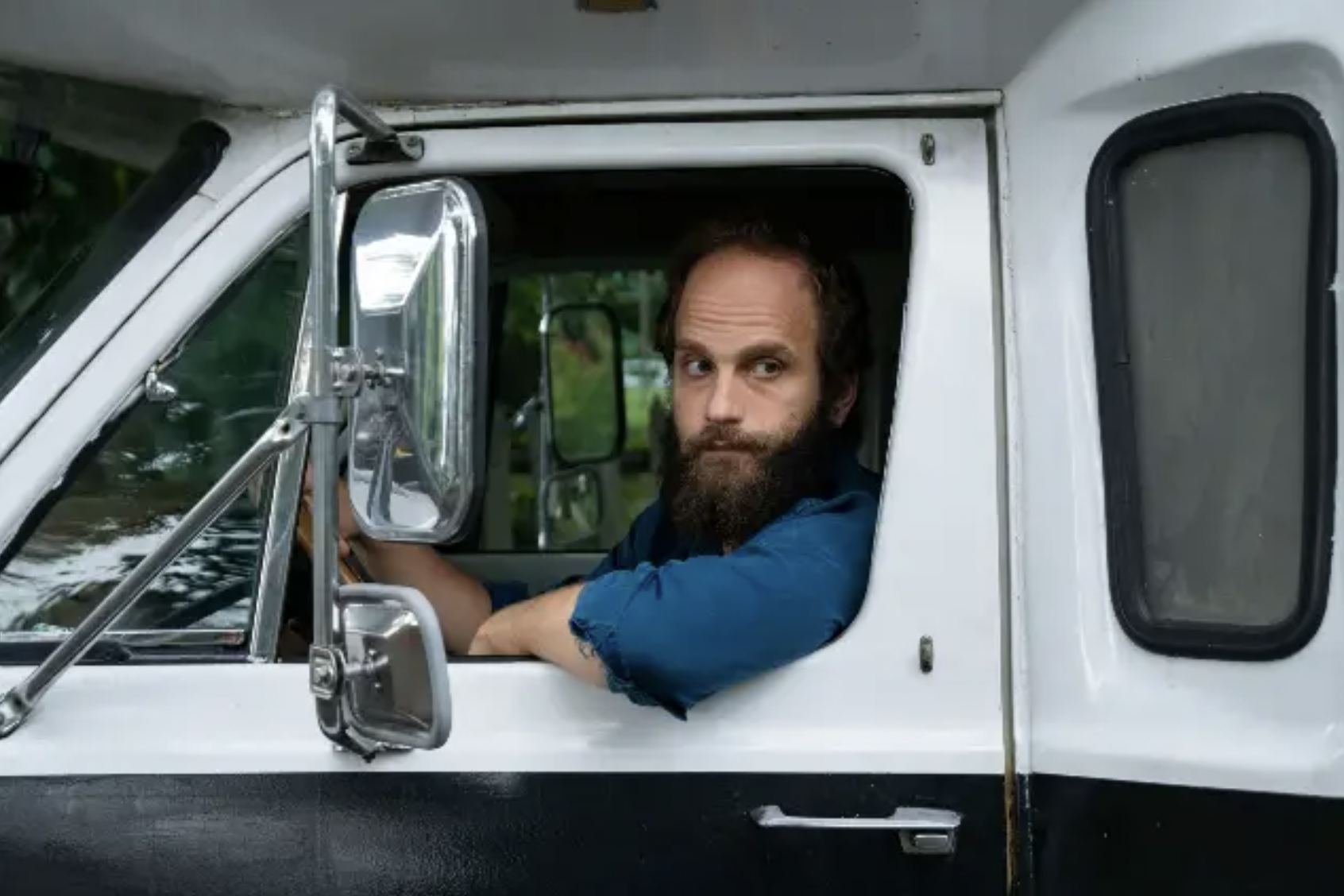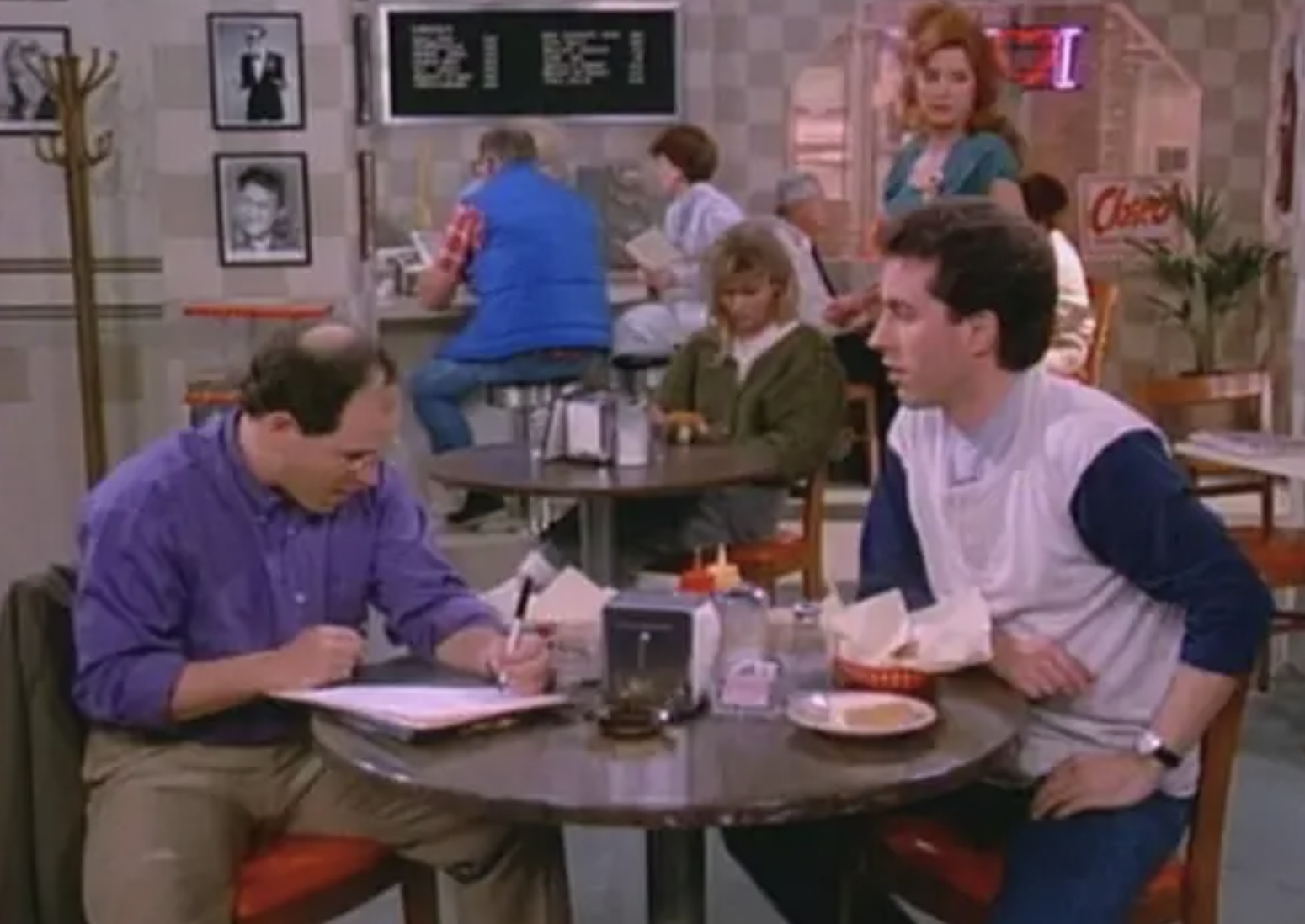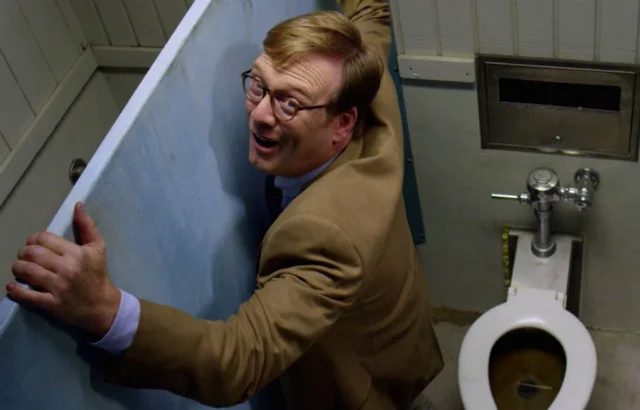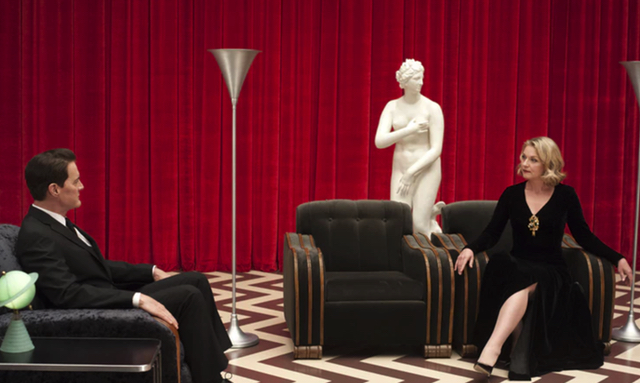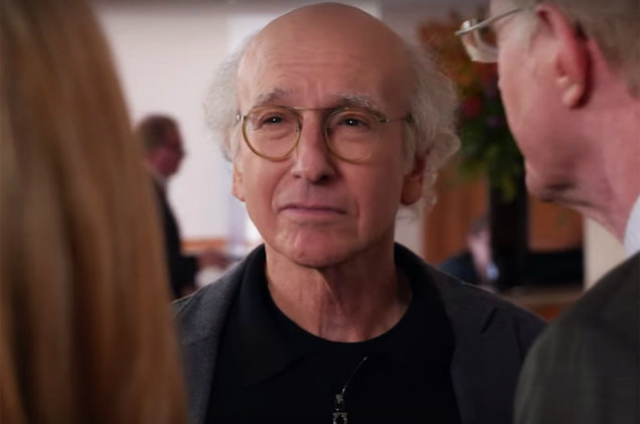Multiple seasons worth of recaps of Game Of Thrones episodes. Includes Rickonwatch, Ser Friendzone, The Ghost Of Ned Stark's Manbun, The Artist Formerly Known As Littlefinger and more.
The invisible hand of tragedy—that should be capital-T Tragedy, in the really big, really Greek sense—is hanging over Better Call Saul more than ever in the newest season. The more time we spend with the pre-Breaking Bad iterations of these beloved characters, the less we want to see them fulfill their destinies.
[Check out Better Call Saul recaps here, and an interview with showrunner Peter Gould here]
The show has become a wide-reaching portrait of NYC that is successful because it is familiar without being rote—as if you set up a camera in your own cramped apartment then passed it to your neighbor.
The Deuce explored how the intersection of the burgeoning pornography industry and the forces of capitalism combined to radically change the identity of Times Square.
The show's adherence to a slightly cynical, lovably surreal, etiquette-obsessed, and distinctly Jewish sense of humor was a remarkably unique blend at the time. And it is remarkable to think about how close we came to Seinfeld never making it past the pilot.
Recaps of season three of Succession, a show all about how people jockey for power (and process trauma).
[Also check out this interview with star Brian Cox]
During the first months of the pandemic, I published a regular guide offering different TV viewing recommendations.
It was a show about a man who reviewed life for a TV show, except the TV show ended up controlling his life. It was the story of Job as told through the milquetoast prism of Andy Daly's particular brand of comedy. And most importantly, it was the show that made me laugh out loud more than any other television show in recent years.
The fifth season premieres with all the amazingly bad wigs, triple agents, period-appropriate soundtrack cues, and complicated spy shenanigans fans have come to expect.
[Also check out interviews with showrunners/creators Joe Weisberg and Joel Fields and castmember Alison Wright]
If that sounds strangely ambiguous, like a person keeping resolution at arm's length for the sake of it, then that's just a part of beauty of this weird, heartfelt little show that one has to accept.
The Leftovers was never a show meant for mass appeal—but it's one that anyone could see themselves reflected in. What's truly miraculous is how it turned what could have been 'depression porn' into a thoroughly compelling, addictive story.
It is a show about addiction, therapy, the scarcity of bodega cats, and/or metaphysical connections.
The minute you witness an adult projectile vomit in public, their vulnerabilities splattered with Pollock-esque enthusiasm all over themselves (or someone else), is the moment that you lose your innocence forever.
The most striking thing about it is how much Fallon refuses to understand his critics and acknowledge that things have changed, perhaps irrevocably, in the world of late night TV. He ultimately comes across more as self-pitying than sympathetic.
Station Eleven, The White Lotus, I Think You Should Leave, Succession, The Other Two, and the best shows of the year.
It masterfully zig-zagged between setting up new plot lines with new characters, checking in on old Twin Peaks residents, and whetting our appetite for the supernatural Cooper/BOB material.
Glow is equal parts Bad News Bears underdog sports drama, glam '80s time piece, and proto-feminist text. In particular, the show deftly (and often hilariously) embraces, critiques, and challenges female stereotypes again and again through the personas of the wrestlers—all without fetishizing its actresses.
Even before I saw a single piece of footage from the project, it immediately became my most anticipated TV show of all time. And now that I have seen the first trailer for the show, it has become my favorite TV show of all time
This was a very serious show about BIG IDEAS involving consciousness, violence, the ouroboros of human existence, and storytelling in the age of the internet, all channeled through the prism of puzzle shows a la Lost (but with fewer polar bears and more Inception).
The show is as interested in exploring the inner lives of its characters, and their struggles to live with depression in all its various forms, as it is in painstakingly set-up visual gags and puns. It is a challenging show, one that uses its Hollywoo satire sheen and animated tomfoolery as the sugar to get audiences to gulp down a deeply-felt meditation on depression and self-sabotage.
More than any other modern TV show, it rings true to a myriad of NYC experiences without falling into pretentiousness. The show is able to capture the absurd magnetism that keeps us all tethered to the NYC grind, without whitewashing the mundane struggles, the exuberant hustles, and the narcissistic shittiness that comes hand-in-hand with everyday life here.
Trump is a product of television (reality TV in particular), so the most accurate lens from which to view Trump—and to understand how he views himself—may be through his idealized, televised self.
[Also check out my ongoing SNL recaps]
Based on the first two episodes of the new season, we can safely say that Larry David remains the William Butler Yeats of comedy.


